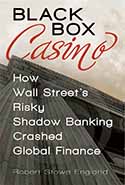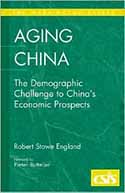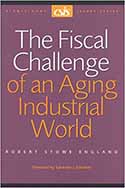
This cautionary tale explains how the murky and complex world of mortgage finance caused a global market meltdown―and offers new insights on how to create a stronger world of banking and mortgage finance.
Mr. England writes about the financial crisis with harrowing precision.
-- Daniel Henninger, deputy editorial page director, columnist, Wall Street Journal
First Reckless Endangerment and now it is Black Box Casino's turn to shine a bright light on the root causes of the mortgage meltdown. England, relying on decades of experience as a financial reporter and consummate research skills, documents how government housing policy, political expediency, and crony capitalism combined to cause the mortgage meltdown that nearly sank the world’s economy.
-- Ed Pinto, former chief risk officer of Fannie Mae
Drawing upon sources not available to previous writers, England presents the most complete account yet of how the collapse of an obscure subprime mortgage lender in January 2007 could eventually take down some of the greatest names on Wall Street by September 2008, wreaking massive economic destruction that Americans are still struggling with today.
-- Kenneth Cline, managing editor, Banking Strategies Magazine

Praeger Books and Center for Strategic and International Studies
Washington Papers Series
Published April 2005 by Greenwood Publishing Group, Incorporated
Forward by Pieter Bottelier

Center for Strategic and International Studies
Significant Issues Series
Published January 2002
Foreword by Sylvester I. Schieber
In the coming half-century, the proportion of elderly in the populations of developed nations will nearly double, challenging the sustainability of old-age pensions and health care. This book examines the extent of that challenge and offers probabilistic forecasts for the Group of Seven industrial nations.
Read more: The Fiscal Challenge of an aging industrial world

Center for Strategic and International Studies
Significant Issues Series
Published May 2002
Foreword by Robert D. Hormats
The retirement of the baby boom generation poses a challenge to the world's financial markets. This book examines the prospect that, after 2020, pension funds will have to pay out more in benefits than employers will be contributing, and it considers the extent to which individuals will liquidate equity holdings, or switch to bond holdings, or do both to sustain their living standards. The book examines the possibility that these changes will drive down equity values.

Center for Strategic and International Studies
Significant Issues Series
Published November 2002
Foreword By E. Clay Shaw, Jr.
Over the next 50 years the work force in most developed countries will decline while the proportion of elderly will nearly double. The change is expected to lead to sluggish growth rates and to put a brake on rising living standards. This book reviews and analyzes the impact of this and examines as well the potential for gains in productivity and technological innovations to counter the effect of global aging.
